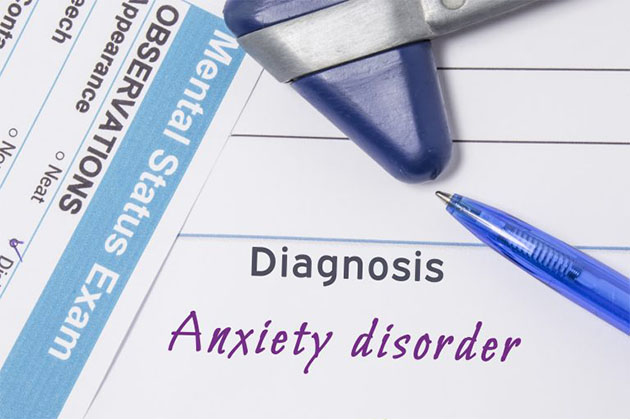Researchers have studied detailed effects of ‘pessimistic thinking’ which occurs in חרדה ודיכאון
יותר מ-300 מיליון ו-260 מיליון אנשים ברחבי העולם סובלים דכאון ו חרדה respectively. Many times, a person suffers from both these conditions. Psychiatric problems like depression and חרדה are devastating for patients and their families and they are extremely difficult to treat. Patients suffering from these neuropsychiatric disorders tend to experience a range of negative emotions and moods which makes them more pessimistic thereby making them focus more on the downside of any given situation. A specific personalised treatment can generally help patients alleviate some of the symptoms of these disorders. A type of psychotherapy – cognitive-behaviour therapy – is useful in curbing negative thoughts and emotions. Interpersonal therapy is also routinely used for better outcome for patients. Medications are also advised along with psychotherapy and sometimes interpersonal therapy.
Understanding the effects of depression and חרדה הפרעות
במחקר שפורסם ב עיצבון scientists have studied how emotions are controlled by our brain. The main goal of researchers was to investigate if they could reproduce the effect on brain which happens to people suffering with depression, חרדה or other similar disorders. These patients have a highly negative thinking and they tend to place more weight on negative aspects and outcomes of any particular situation.
The group of researchers from MIT pinpointed a region in the brain which is linked to emotional decision making and is responsible for generating pessimistic moods. This region is called ‘caudate nucleus’ and when it is stimulated it leads to generation of negative moods and /or decisions. This study has been conducted in animals for now. The animal was seen to focus more on the negative drawbacks of situations and not on the benefits whenever this region was stimulated in their brain. This pessimistic decision-making continued for at least 24 hours after the first stimulation was performed. The same group of researchers had previously identified a neural circuit which is crucial for a type of decision making which is called as ‘approach-avoidance conflict’. Making such choices requires a person to weigh the positive as well as negative aspects of a situation and this involves high levels of חרדה and sometimes stress. This stress obviously then affects the decision-making process. Therefore, animals got influenced and they then chose a high-risk option under stress anticipating better payoffs.
כדי לבצע אימות, החוקרים הציעו לבעלי החיים פרס (מיץ) יחד עם גירוי לא ידידותי (נשיפה גדולה של אוויר לפנים) ולאחר מכן גירוי את גרעין הקאודאט שלהם עם זרם חשמלי קטן. בכל משפט נעשה שימוש בפרופורציה שונה של פרס וכאב כדי לשפוט אם החיות יקבלו או ידחו. זוהי דוגמה לקבלת החלטות הדורשת ניתוח של עלות ותועלת. היה מעניין לראות שבכל גירוי, כאשר יחס העלות-תועלת הפך להיות מוטה, כלומר יותר עלות ופחות תועלת, בעלי חיים התחילו לדחות שילובים שהם קיבלו בעבר. זה נמשך עד 24 שעות לאחר הגירוי. זה שידר שבעלי חיים התחילו להוריד מערכם בתגמול שהם רצו קודם לכן והפוקוס שלהם עבר יותר לחלק העלות. כמו כן, בהתבסס על קבלתם או הדחייה הפעילות המוחית שלהם בגרעין הקאודאט השתנתה בכל פעם שהיה שינוי כלשהו בדפוס קבלת ההחלטות שלהם. לכן, שינוי זה ב'תדירות בטא' יכול לשמש כסמן ביולוגי כדי לראות אם החיות יגיבו לתרופות מסוימות.
ויסות מצב רוח
Researchers explained that some regions in the caudate nucleus are connected with the limbic system which is known to control a person’s mood. This system directs input to motor areas of the brain as well as the dopamine-producing regions. The authors concluded that maybe caudate nucleus was disrupting this dopamine activity. Therefore, even a slight change in our system could mean rapid change our behaviour. The findings in this study could help us understand depression and חרדה in detail which can then assist us to develop new effective ways of therapy.
***
{תוכל לקרוא את עבודת המחקר המקורית על ידי לחיצה על קישור ה-DOI המופיע להלן ברשימת המקורות המצוטטים}
מקור (ים)
Amemori K et al 2018. מיקרוסטימולציה סטריאטלית גורמת קבלת החלטות שליליות מתמשכות וחוזרות על ידי תנודת בטא-בנד סטריאטלית. עיצבון. https://doi.org/10.1016/j.neuron.2018.07.022
***






































